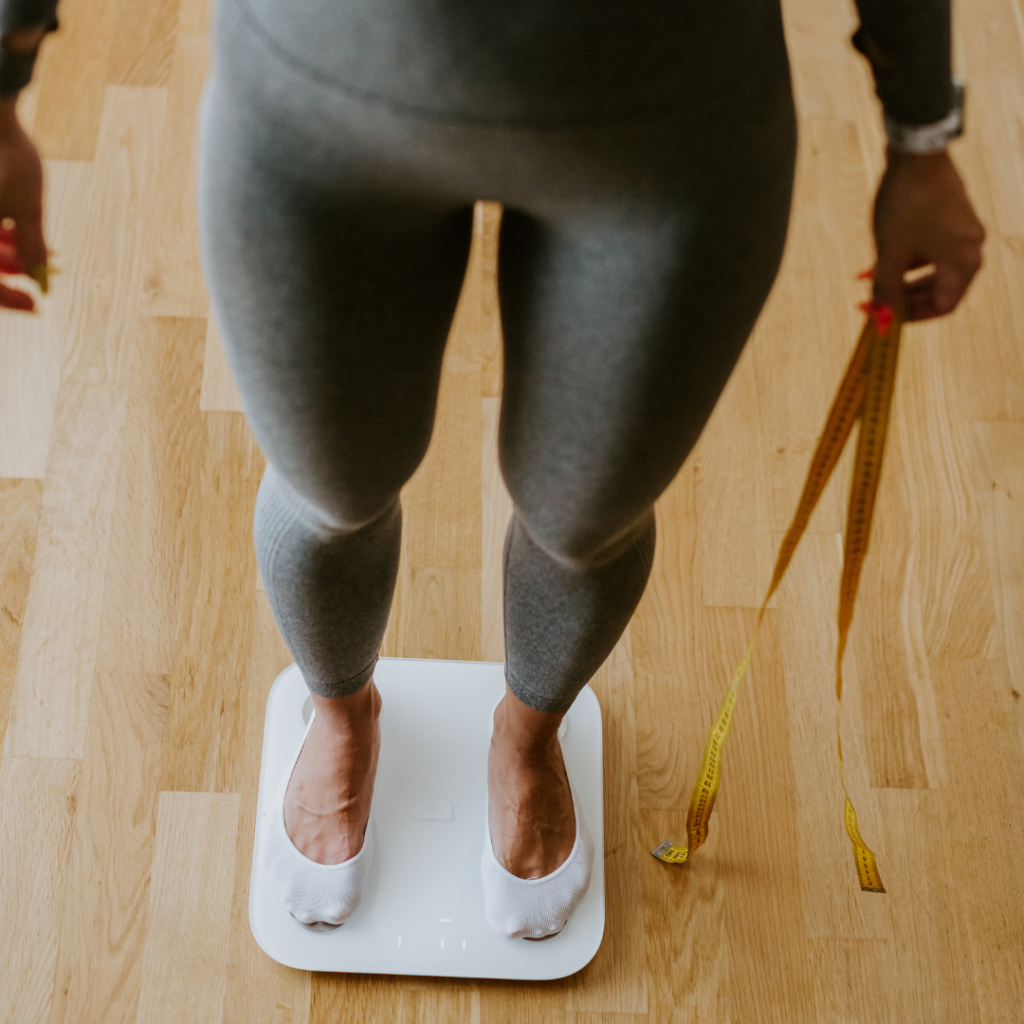By Nikki Ternay
When it comes to tracking your weight loss journey, there are many methods you can choose—whether it’s using a scale, a tape measure, or assessing your body fat percentage. What that number means to you can significantly influence how you perceive your progress. The data is just that: data. But we often make it mean we are horrible humans who can’t follow a plan, or that our bodies hate us if we see a number we don’t like. OR, if you see a number you love, suddenly your day is all roses and sunshine. But it’s just a number. Let’s explore why and discuss alternative ways to gauge your journey toward a leaner, healthier body.
The Scale: A Data Point, Not a Determiner of Worth
The scale is often the go-to tool for tracking weight loss, but it’s essential to understand what it truly represents. The number you see on the scale is simply the gravitational pull of your body on Earth while you stand on a piece of plastic and metal. That’s it. It does not dictate how your day will go, nor does it define whether you’ve been “good” or “bad.” It’s just data—one piece of a much larger picture.

The Tape Measure: A More Nuanced Approach
Using a tape measure can be a more telling indicator of progress, especially when you measure consistently and in the same exact spots. A pro tip of mine is to measure in centimeters, especially if you live in the USA, because most women aren’t as emotionally attached to centimeter measurements as they are to inches. This makes it easier to see changes without attaching too much meaning to the numbers. Again, the key is to remember this is just data. Avoid developing an emotional attachment to the process—use it as a tool to help track your progress objectively.
Body Fat Percentage: The Reality of Accuracy
Body fat percentage is often touted as a more accurate measure of fitness than scale weight alone, but it’s important to note that the only truly accurate body fat measurement comes from an autopsy—a method none of us want to sign up for! While DEXA scans and at-home body fat scales are options, they are not foolproof. DEXA scans, which cost between $150 and $320 without insurance, are considered more accurate but still have limitations. At-home scales, on the other hand, can be misleading. There’s an inverse relationship between hydration levels and body fat percentage—if you are more hydrated, you will show a lower body fat percentage, while less hydration can show a higher one. These methods, while useful, should be taken with a grain of salt.
Wearables: A Convenient but Imperfect Tool
Wearable devices like Apple Watches, Fitbits, and Garmins provide a wealth of data, but how accurate are they? And if you forget to wear your device one day, does that mean your steps don’t count? Of course not! Ever feel like you had a great night’s sleep and your watch says otherwise? Why do you trust the watch over your own opinion? Relying too heavily on these devices can lead to external validation, which will play into a dieter’s mentality, setting you up for highly emotional, happy days or really low, frustrated days based on whatever that wearable is “telling” you. Always check in with yourself first.
Focusing on Internal Cues: 4 Ways to Track Progress Without Tools



1. How Do You Feel in Your Body?
Does your body feel lighter and leaner? If so, you’re likely heading in the right direction toward the body you want.
2. Are You Feeling Stronger?
Are you able to lift heavier things with greater ease than before? This increased strength is a positive sign of progress.
3. How Are Your Energy Levels?
As you get healthier, your energy levels will improve. If you’re sleeping better and feeling more energized throughout the day, you’re on the right path.
4. Are You Comfortable Around All Foods?
Feeling in control and comfortable around all kinds of foods is a huge clue that you’re one step closer to achieving the body you want.
The Importance of Mindset: Inside-Out Transformation
True, sustainable weight loss comes from within, not from external tools or validation. Your mindset is the foundation of your success. Start by setting your mindset up for success, and everything else—the scale, your workouts, your food choices, and ultimately your body—will fall into place. Remember, the journey begins inside (between your ears), and that’s where the real transformation happens.





